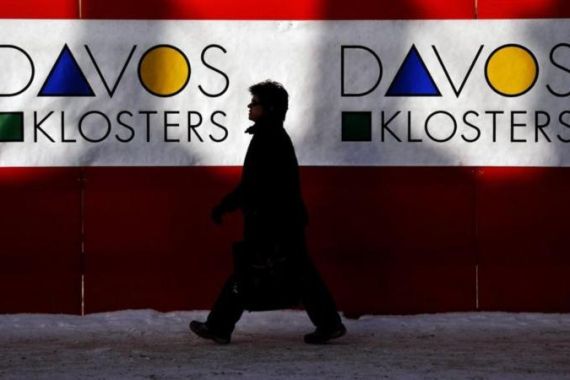Ignoring global inequality
International law should be enforcing governments to create frameworks that foster citizens to realise their rights.

As business and government leaders gather for the annual World Economic Forum in Davos this week the issue no-one should ignore is global inequality – including from a human rights perspective.
Countries like China, which have seen the highest economic growth, are seeing a spiralling disparity of wealth. The Organization for Economic Co-operation and Development found that in the wealthiest countries the average income of the richest 10 per cent of the population is nine times that of the poorest 10 per cent. That’s seven times higher than it was 25 years ago. Few countries buck the trend.
As millions of people confront rising costs and cuts in social spending, revelations about how the very rich plus large corporations have been able to protect their wealth, in good times and bad, have sparked protests and demands for legislative change.
But is it a human rights issue? I would argue yes.
Human rights activists have long challenged inequality based on a person’s identity or status – gender inequality, unequal treatment on the basis of race, religion or other grounds.
But there is a broader issue, too. If you are a woman, if you are from a marginalised ethnic group, if you come from a neglected region of the country, there is a much greater likelihood of your being poor. If you are at the bottom of the social pyramid, you are likely to be at the bottom of the economic pyramid as well. Civil and political rights are inextricably linked with economic and social rights.
To be clear: there is no human right to equality of wealth, nor will there ever be.
But human rights law does mandate that everyone has the right to an adequate standard of living, including adequate food, water and housing. Children have a right to education. Everyone has a right to access basic and emergency health care. Everyone has the right to protection of the law, which includes law enforcement systems that work effectively. And governments must work to improve access to those goods and services that are essential to the full enjoyment of human rights. They have a responsibility for their quality too.
International law does not require governments to provide all of the goods and services that are necessary to fulfil human rights – but they are responsible for ensuring there is a framework in place to enable people to realise their rights.
When analyzing these issues, we have tended to focus on how governments use their resources.
But we need to look at the structural underpinnings of deepening global inequality, too – including the diversion of resources that should be used for the public good.
Anger in Greece exploded when it was revealed that the Minister of Finance took no action when he had been made aware of wealthy citizens stashing money away in Swiss bank accounts to avoid tax. In the UK, multinational companies were found to have paid little or no tax. In both cases, public anger was fuelled by the fact that the governments are imposing deep cuts in social spending and vast numbers have found themselves pushed into poverty.
These revelations do not necessarily involve illegal conduct. Outright corruption and the theft of public monies is an older story, played out in many countries where massive natural wealth coexists with grinding poverty.
But we now see how the corrupt political elites that have plundered the resources of many regions use many of the same financial structures to transfer and hide their illicit wealth, including secretive tax havens and the use of multinational corporate structures to play “hide the profits”.
We live in a world where the ultra-rich can avoid taxes but retain all the benefits of being residents in a country, where unethical companies can legally swindle resource-rich countries out of their natural wealth, and where corrupt elites can stash their money offshore — even after their crimes are exposed.
Combating poverty and inequality is a complex challenge. There is no silver bullet. But when governments are straining to balance the books, it is those who most need social services and safety nets that suffer most.
In examining the growing inequalities in the world, the structural underpinnings must be exposed and examined. We need both greater transparency and more effective international cooperation if we are seriously to address the consequences of growing wealth disparity.
With greater transparency, many of the worst practices can finally be addressed. And the human rights benefit will be huge.
Salil Shetty is the Secretary General of Amnesty International. A long-term activist on poverty and justice, he leads the movement’s worldwide work to end the abuse of human rights. Prior to joining Amnesty International, he was the director of the United Nations Millennium Campaign.
You can follow Salil on Twitter @salilshetty
